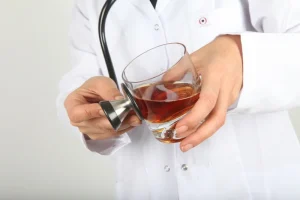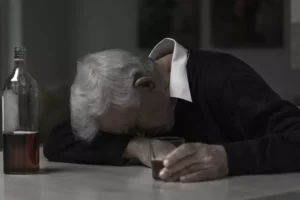
High-stress jobs also place people at risk for developing alcohol dependence, including lawyers, doctors, and air traffic controllers. These are also careers where drinking at work can cause significant damage to oneself and others, beyond coworkers or businesses. Some employees are more likely to develop an alcohol use disorder and bring it into the workplace. Bartenders are 2.33 times more likely to develop AUD and subsequently die from alcohol-related deaths. Roofers, painters, and other construction-related jobs are 1.87 to 1.72 times more likely to be affected by alcohol abuse.
Alcohol poisoning

Regular after-work drinking poses several significant physical health risks, and it is crucial for individuals to be aware of the potential harm that can arise from such habits. Excessive alcohol consumption has been linked to a variety of health issues, including liver disease, heart problems, and an increased risk of certain types of cancer. The World Health Organization has emphasized that no level of alcohol consumption is considered safe, as alcohol is a toxic substance classified as a Group 1 carcinogen, alongside asbestos and tobacco.
Don’t reuse single-use plastics for food and drinks
Whether it’s finding great products or discovering helpful advice, we’ll help you get it right (the first time). The air we breathe is also a potential source of microplastics, in the form of dust. Reducing airborne dust in your home, then, may reduce your exposure to inhaled microplastics. This beautiful teak board requires more careful cleaning than a plastic board, but it feels better under a knife and is easier to maintain than the other wood boards we tested. But these lids also put stress on the lips of the containers, so the glass may be prone to chipping over time.
What Is Binge Drinking? Signs To Look Out For
At AAC, we’re open and committed to providing critical care in a safe environment, even during the ongoing pandemic. If you’re ready to quit drinking and reclaim your life from addiction, call now, or click to chat. You can also suggest sober activities to your company’s HR department.
- Those methods serve not only the interests of the employer but also those of the employees and their dependents.
- In addition, employers can use their influence to motivate employees to get help for an alcohol problem.
- If you find that you can’t control your drinking, or know a loved one who is struggling with addiction, know that there is help out there.
- Outpatient treatment is best for mild alcohol addictions, and it allows patients to attend doctor and therapy visits while still living at home.
- Some of these effects, like a relaxed mood or lowered inhibitions, might show up quickly after just one drink.
Little is known about the operation of these interventions among professionals because they are conducted with high levels of confidentiality. Research has been conducted, however, on union-based Member Assistance Programs (Bacharach et al. 1994; Bamberger and Sonnenstuhl 1995). These programs are reported to be highly effective, although the extent to which they may provide early identification of alcohol problem behaviors has not been documented. Employee alcohol education programs may prepare peers to suggest assistance to one another, but this has not been documented.
Science-Based Health Benefits of Drinking Enough Water
Furthermore, the negative impacts on the body’s ability to convert food into energy can lead to diminished exercise performance and increased risk of injury, particularly if alcohol is consumed before physical activities. There are various types of professional help available, from residential treatment programs with multidisciplinary teams to behavioral treatments such as cognitive-behavioral therapy https://ecosoberhouse.com/ (CBT). Licensed alcohol and drug counselors, social workers, nurses, and physicians are among the professionals who can support individuals in overcoming alcohol use disorder. Medications approved to treat alcohol dependence may also be prescribed as part of the treatment plan. After-work drinking is a common social practice that, while seemingly harmless, can escalate into health risks and dependence.

Shain and colleagues (1986) collected short-term evaluative data in several Canadian settings indicating that health promotion and wellness programs can significantly reduce employee drinking. In particular, the authors state that heavy drinkers are characterized by a series of unhealthy behaviors that can be addressed through a wellness program. Further, Shain and colleagues (1986) observe that healthy lifestyles and alcohol abuse are incompatible.
- Employers have the right to require that employees meet certain expectations regarding performance and conduct in the workplace.
- Always consult your healthcare provider to ensure the information displayed on this page applies to your personal circumstances.
- Research has shown that a headache is one of the most common symptoms of dehydration.
- While moderate consumption might provide temporary relaxation, chronic use can disrupt this delicate balance, potentially leading to mood disorders.
Your Heart Gets Healthier

Recognizing when to seek professional help for managing alcohol consumption is a vital step toward recovery for those struggling with drinking habits. A critical indicator is the development of increased tolerance and withdrawal symptoms, which can signal an underlying alcohol use disorder. Professional help should be considered if you find yourself needing to drink more to achieve the same level of intoxication or if withdrawal symptoms become apparent. risks of drinking after work Recovery from alcohol-induced health problems, such as cognitive deficits and cardiovascular issues, depends on several factors, including the individual’s motivation and engagement in treatment. Social support is also crucial, as isolation can exacerbate the risk of relapse. Professional treatment programs and support groups can provide the necessary assistance for those struggling with after-work drinking turning into dependence and addiction.

According to the National Institute on Alcohol Abuse and Alcoholism (NIAAA), nearly 9 in 10 adults in the United States have consumed alcoholic drinks during their lifetime. It is rare that someone would go to treatment once and then never drink again. More often, people must repeatedly try to quit or cut back, experience recurrences, learn from them, and then keep trying.